One Starling
The rail drifted slowly into place, glowing orange...
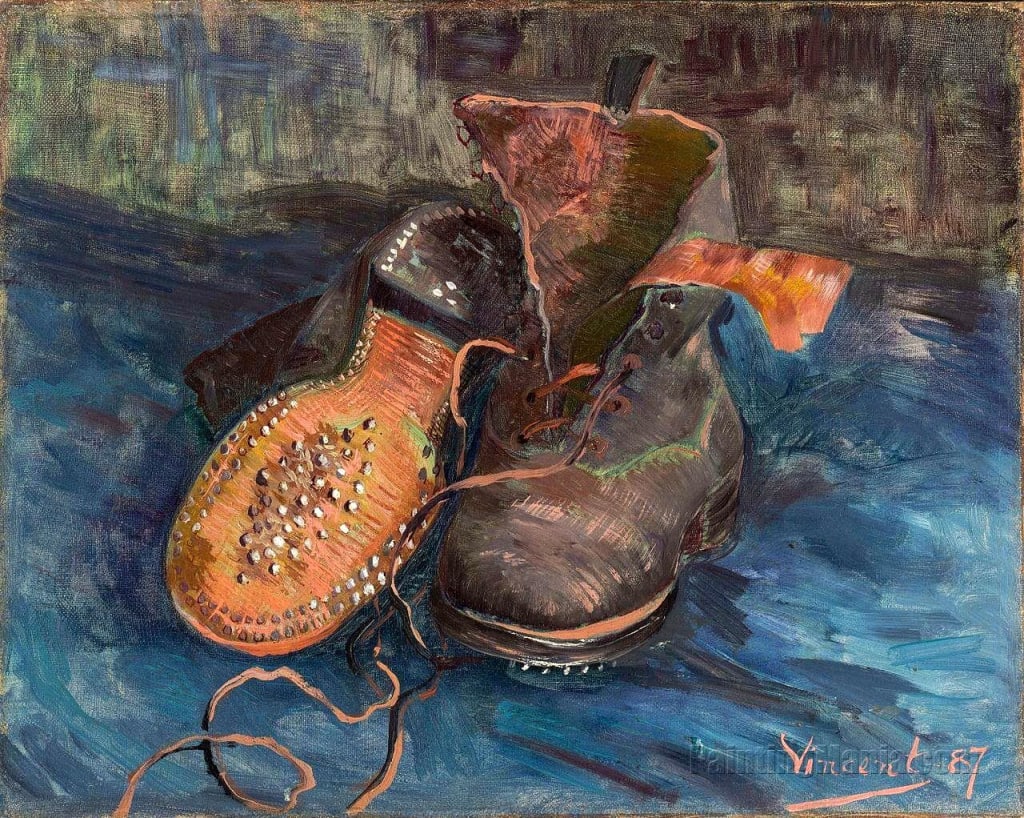
The rail drifted slowly into place, turned a half-circle as it came, glowing orange and carmine and blue.
In the top branches of close oak trees stood perhaps a hundred or two hundred quiet, still starlings.
✼
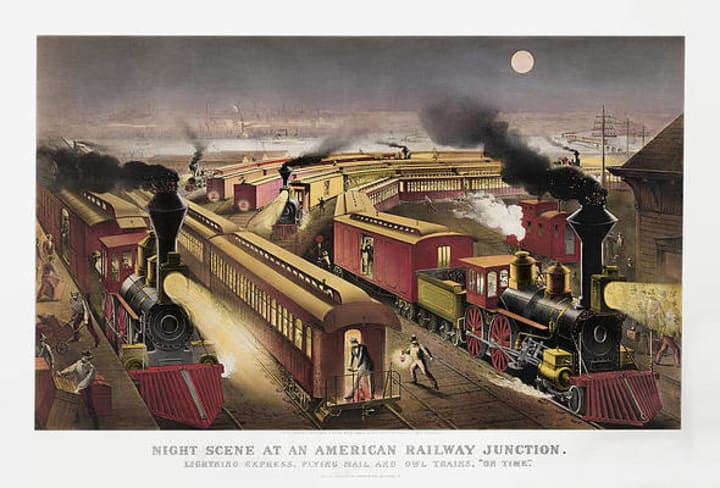
The first man had a cold. He crouched with his boots splayed out at odd angles in the machine that lifted and swung the rail-segments because his feet were clubbed. His boots were cheap canvas. His whiskers bristled in the frozen air, and he was afraid to wipe his upper lip in case the hairs broke off.
A red apple stuck out of the first man’s mouth, pinned there by his front teeth.
As he watched the rail swoop toward the men on the ground, he thought about the breasts of the woman he’d met in town, how there was no word for the shape of a breast, how a breast was impossible, how it seemed like something that should grow on a tree, one of the trees in Paradise.
He laughed and said the word sure. Sure.
✼
The second man didn’t speak. His name was Johnson, after a president, but when he wrote it down he spelled it Gonsin. So everybody called him Gonsin. This patch of railroad was bigger than his hometown if you included the far reaches of the caravan — the dormitories and the infirmary — and his father’s house could have fit in the small crook of dirt by the oak trees where they were working now, watching the rail-segment swing into place above their heads. His boots were the biggest of all of the boots, and tipped in steel toes. The lace-holes were wide, like small black eyes arranged in caterpillar-feet rows along both sides of the laces; tied with strong twine they sold for one cent a foot. Gonsin’s left third finger was gone, and he wore his wedding ring on the pinky. He held his hammer akimbo, point hooked at his belt and sledge cupped in his palm; the other men kept their sledges on the ground by their feet. Held this way, from a certain angle the sledge looked like a great tail, and Gonsin with his upright posture seemed to be some kind of latent beast, ready to stretch its wings.
Watching the rail, orange and pulsing and hot, drift toward them, Gonsin thought of nothing.
✼
The third man cleared his throat, spat blindly into the dirt, and drifted forward and backward on the balls of his feet, and his feet were clad in expensive leather into which the compulsory steel-toes had been fastened with ill-regard (he thought) for the boots’ natural color and contour. He wiggled his toes and admitted that they felt safe beneath the metal. Black hair hung over his face, sweaty. It recalled to him the feeling of the cool salt ocean air, day after day a succession of coolness and salt, ad infinitum, as Spain receded behind and America approached, and above him sails stretched tight like skin, and the deck of the ship creaked like a hundred doors opening and closing.
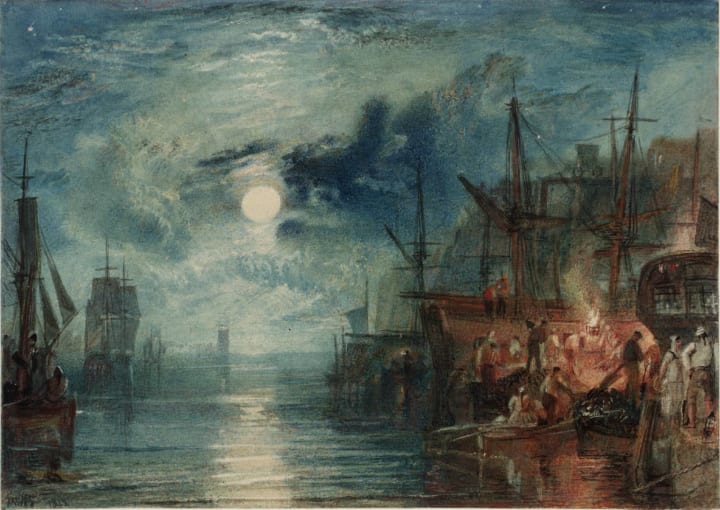
He wondered how he would look trying to lift the hammer out of the dirt. He flexed his biceps. The rail-segment, coming toward him at a glacial pace, reminded him of the track a meteor makes in the sky on a clear, patient night. Glowing a laughing orange. Antonio, someone said beside him, get a good grip now.
✼
The man beside Antonio — the fourth man — had during the past sixty years gone by the names: Shorty, Lefty, Righty, Rockefeller, Foreman, Private, Lieutenant, Hey-You, Patrick, and Paddy. In the warehouse, everyone called him by his last name, Mason. This the old man regretted. He felt it was a sign of disrespect, or lack of imagination, to call someone by their family name, presuming that there was nothing more noteworthy about a man than where he came from. It made Mason grin. Everything made Mason grin. His teeth, which were wooden, shone orange in the glow of the rail, which swooped in above. Antonio, he said, get a good grip now. Don’t drop the fucking thing on me. I’m old. He grinned.
Watching the rail come toward them, Mason thought of a line of wheat that grew behind his grandfather’s house years and years ago between two spreads of grass kept short by cattle. Wild junipers grew on either side of the wheat. The wind would blow the wheat back and forth, back and forth, like a hand running over suede. Inside the wheat was an old barn. In a corner of the barn, behind a haystack, Mason remembered, was a good place to hide where no one could find him and no shout could penetrate.
As the rail approached, Mason thought of the barn, of the hiding place, of suede turned against the grain.
✼
The fifth man, the last, signed his name with Chinese characters. He pointed to his chest and spoke very slow, clear Mandarin, but no matter how slowly and carefully he enunciated the white men insisted on calling him Ming.
Every time he lifted his hammer the white men around him would laugh impressed, agog laughs, bemused at the sight of such a little man carrying such a big weight. The fifth man ate the American food without complaining, used a fork while the forks lasted and his hands after they’d all been melted down to make more rails, and although this disgusted him he did not complain. His left eyelid drooped, and in order to get the job on the railroad he’d had to droop the right eye equivalently to make it look like an affected squint rather than an involuntary handicap.
Watching the rail-segment move into place above the line of men, the man whose name could only be spelled with Chinese characters laughed, and thought of one thing: leaves on a tree. The snow fell thickly. He saw round pink blossoms and petals, and he wanted to grab the black branch and eat the petals like corn off a cob. The rail-segment, which approached quickly, was heated to an extreme temperature and made his front sweat vigorously; his back and thighs were near-freezing in the motionless winter air. He did not notice that the rail was moving perhaps a little too far toward them.
✼
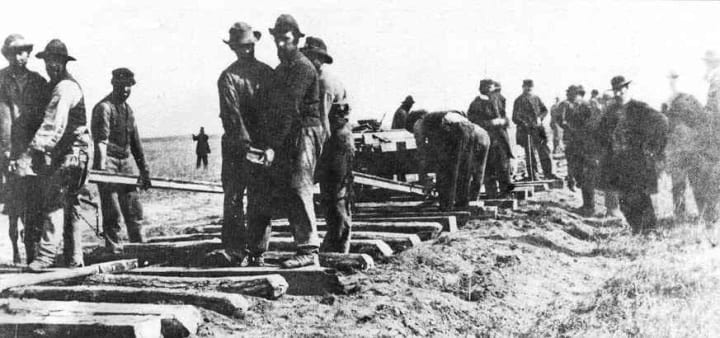
The first man took an accidental bite out of the red apple and cursed when it rolled between his legs and under the controls of the machine that operated the crane that moved the rail-segment. He tried to pull it back with his feet, scooted down in his seat; his gaze left the rail-segment briefly. A crust of mucous drifted out of his nose and into his mustache. The waxy surface of the apple slid under his stretched fingers. He coughed.
✼
The rail-segment wobbled in place above the four men on the ground, and then, without presage, without a prompting movement or sound, one of the cables binding it to the crane slackened all at once, and immediately thereafter the second cable snapped.
The rail fell directly onto the four men’s boots.
✼
In the oak trees, the starlings watched impassively.
Gonsin was the first to scream, falling toward the oak trees across the rail-ties, and then backward when the stiffness of the boot-ankles prevented his legs from bending forward. Out of each of the lace-holes on each foot, tiny, thin spouts of red shot into the air. The steel in the toes crushed under the weight of the rail, and the leather smoked from contact with the scalding orange.
The black lace holes were rows of blank eyes staring beyond nothing and back around at themselves. As he twisted where he lay, beating his head against the dirt, Gonsin felt as though the crook in the railway by the oak trees was smaller than the closet in his father’s bedroom, where he’d hidden as a child and watched his parents fight each other on the bed. He reached up toward the clouds, mostly hidden behind dark snow, took hold of them, pulled them free, wrenched them into impossible knots.
The starlings in the bare boughs remained where they’d stood: silent, staring.
Antonio, before he knew what had happened, found himself sitting neatly and quietly on the ground, hands in his hair, eyes locked on the orange rail-segment in front of him.
The only pain he noticed was from the brightness of the rail in his eyes.
Very still, without feeling or thinking, he turned to look at the fabric of his boots, which had been crushed and crinkled like paper. He grabbed ahold of the heels and tried to pull the boots off, hoping that nobody could see the great effort it took, wondering why he was not strong enough to get the things off his feet, wondering how he’d managed to drop his hammer in front of everyone, wondering what he would tell his brothers later on, wondering what they’d say, wondering why he couldn’t picture their faces or remember their voices.
His fingers, he noted with mounting wonder, were merging together and taking on the consistency of canvas, sail-canvas, and before his very eyes they became the top halves of ships, and were nearly impossible to move through the air, clinging to it greedily.
This image began to dissolve; his eyes were hardening in their sockets, becoming golden — round gold coins, crusted over with barnacles and algae. Blinking, he could feel the frieze of a Spanish king on the surface of his scleras.
The spit in his mouth became wood, cherry wood, and extended to form a tobacco pipe, out of which fragrant smoke rose. His jaw lowered and returned on a door-hinge. He felt his body fling itself forward into time, into the fictile air, flapping, every part of him a wing.
The rail segment, on its way to the ground, struck Mason’s left knee, which stuck out prominently because of a certain skew in the joints that had appeared during the last year and which he had tried to keep secret from the foreman. The knee shattered, and the shin beneath it cracked horizontally. The rail came to rest on the curved part where the shin meets the foot, and the pulling away that his leg instinctively performed cause the rail to slip the rest of the way and land on the top of the boot. Mason’s right leg had been stretched slightly behind him, thus avoiding the blow; he had been resting his weight on the right leg, and so Mason remained standing when the others had fallen.
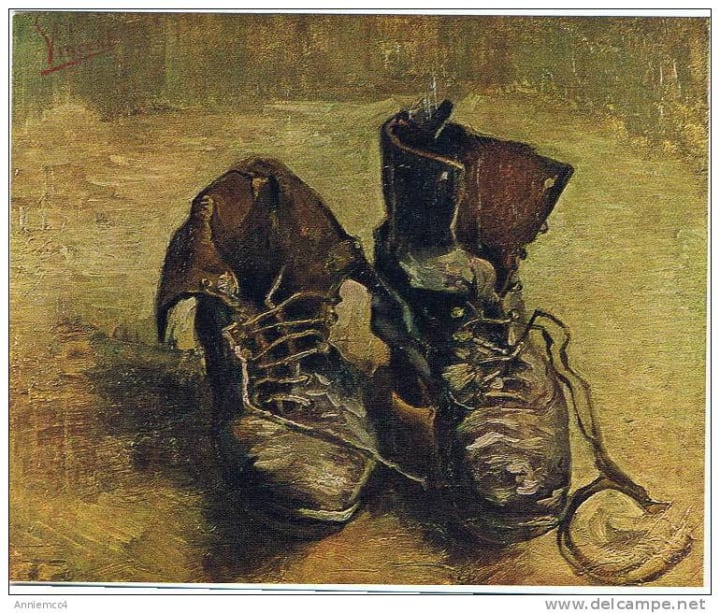
The old man began to shriek capaciously, or rather his throat shrieked of its own accord; Mason himself was somewhere above his own shoulders, and he could not speak because his wooden teeth were growing, sprouting branches and copious foliage, tipping his head back — roots and runners twisted their way through his body, climbing out of his ears and around his neck. Between the branches, people he’d known many years ago were whispering, Lefty, Shorty, Paddy, go home, go home, don’t you know home? and Lieutenant Patrick Mason tipped his head forward, and with that simple motion an entire field of wheat reversed the direction of its tilt, flashing sunlight in a straight arc like suede rubbed against the grain. He hid in a corner of the barn, watching the horses’ legs, the muscles under the short hair, the wet nostrils. His father’s voice could be heard out on the grass, calling his name, Pat, Pat, where are you? Where are you?
The man called Ming, whose name in fact was Liu Qiáng, dug his palms into the dirt and furiously scooted backward, a feeling in his throat that he had never felt before: heat that comes before weeping, moisture that precedes vomit, but the suffix of the emotion rather than the prefix.
Seeing that the rail pinned his feet irrevocably to the ground and he could not hope to scoot away from it, Liu Qiáng took hold of his hammer and raised it above his head, ready to bring it down upon the part of his ankle that poked out from under the rail-segment; he paused, seeing that the hammer in his hands was no longer a hammer but a piece of black wood, complex and contoured like a living limb, wrinkled, divoted where an old man’s arm might be divoted from an ancient scar, liver-spotted, twisty.
Liu Qiáng felt a sudden, gentle pressure against his face, and a fragrance. Leaning his head back and blinking several times, a thousand thousand pink blossoms, pink petals resolved into the air before his eyes. His left eyelid raised all the way up and the whole round eyeball plunged into the blossoms. The right eye followed suit swiftly after. He was not on the ground but high in the air, entwined in the branches of a blossoming tree, miles of mountain and ocean away from California and its forks and its bad food and dirty water — at home, in fact, wrapped in hot, humid air, cradled by a million scents, listening for the voices of his grandmothers in the garden.
✼
The first man watched the others with a curious expression. A frantic movement encircled the motley: a swish of a foreman’s coat, the busy steps of a dozen miscellaneous rail-men circling the disaster without clear purpose, unsure what to do, like dolphins around a dead whale. In his left hand, he held the apple. He did not move, or scream, or frown, because he could see that the four men on the ground were in no pain, no discomfort. In fact, they were not really men at all, but a collection of things, glinting objects, treasure-piles.
One was a curling dragon.
One was a tobacco pipe on the deck of a caravel in a swift wind, and a hundred doors opening and closing in the dark.
One was a field of wheat.
One was an odd tree, pink and black, crawling out into the sky as though attempting to grasp the color blue.
And then they were a cloud of starlings, and then only one, and it flew up to an oak tree, around it, and disappeared into the black winter air.
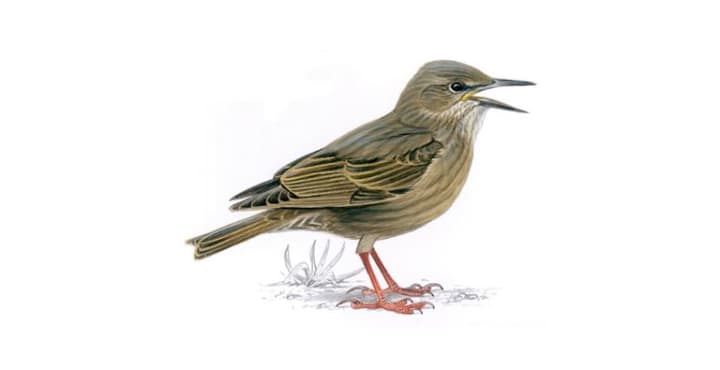
About the Creator
Eric Dovigi
I am a writer and musician living in Arizona. I write about weird specific emotions I feel. I didn't like high school. I eat out too much. I stand 5'11" in basketball shoes.
Twitter: @DovigiEric


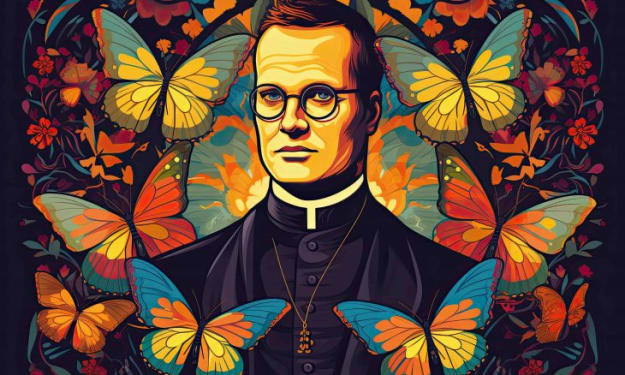



Comments
There are no comments for this story
Be the first to respond and start the conversation.